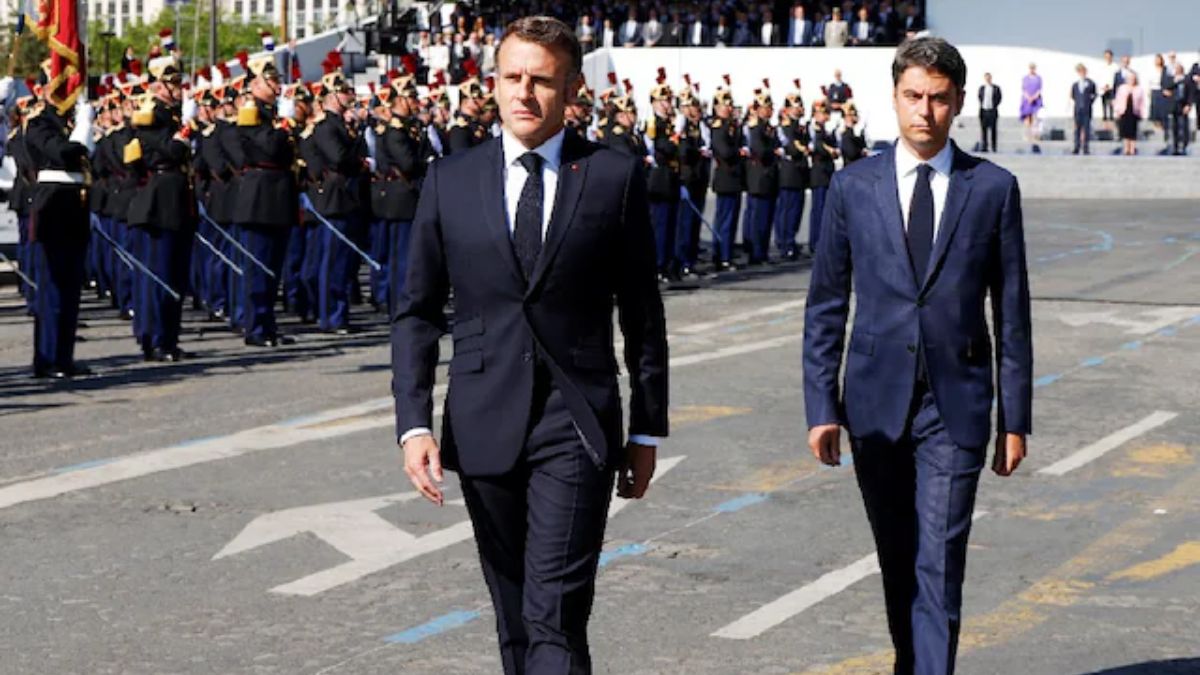French President Emmanuel Macron on Tuesday formally accepted the resignation of Prime Minister Gabriel Attal.
Macron asked Attal to continue running the caretaker government until the formation of the next government, according to a press release from the Elysee Palace, the French presidential office.
Earlier this week, the left-wing coalition New Popular Front (NPF) emerged as the largest bloc in the French parliamentary elections, but the infighting among the member-parties had meant that they have failed to put forward the name of their prime ministerial candidate.
The political deadlock comes at a time when security concerns are high in France as the nation prepares to kick off the Olympics next week.
Macron urges parties to break deadlock
Macron asked the ‘Republican forces’ to join hands to break the political deadlock over the next government’s formation.
In order for this period to end as quickly as possible, it is up to the Republican forces to work together to build a unity around projects and actions in the service of French people, said Macron, as per an English translation of the press release.
The ‘Republican forces’ is an apparent reference to the ‘Republican Front’ that Macron’s centrist Ensemble (ENS) and NPF blocs had formed for the second round of French elections to stop the far-right National Rally (RN) from winning.
Impact Shorts
More ShortsThe French prime minister and the entire government has resigned.
— Sophie Pedder (@PedderSophie) July 16, 2024
This was not unexpected. Macron has asked Attal (🇫🇷 PM) and his ministers to stay on in a caretaking role, and called on “republican forces” (ie not the RN or LFI) to work together to form a new government pic.twitter.com/uhENEdKss0
More than 200 centrist and leftist candidates withdrew from the second round of elections to consolidate all non-right votes behind a single candidate on a seat. The tactical voting arrangement ensured that the RN was relegated to a third-place finish despite securing the highest vote-share in the elections.
Macron has hinted that he will not allow an extremist prime minister to be sworn in — whether from the far-right RN or far-left France Unbowed (LFI) which is part of the NPF.
In the French political system, the president appoints the prime minister. They are then approved by the parliament. This means that the prime minister is almost always from the party or bloc that controls the parliament.
Why hasn’t France got new PM?
The left-wing parties of the NPF coalition have failed to build consensus around a prime ministerial candidate.
The main contention is between the far-left LFI, the largest party in the bloc, and the Socialist Party, which is the second-largest party.
While the LFI has pushed forward its candidates under the belief that it has a rightful claim as it’s the largest party, the Socialists have stressed that extremists from the LFI cannot be serious candidates and Macron is only likely to appoint a moderate from its own ranks as the next French premier.
While the Socialists’ refusal led to the withdrawal of the candidacy of Huguette Bello, 73, a former communist MP and the president of the regional council in French overseas territory of La Reunion, the LFI rejected the candidacy of Laurence Tubiana, 73, an economist and climate specialist who was pushed by the Socialists, the Communist Party, and Green party.


)

)
)
)
)
)
)
)
)



